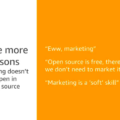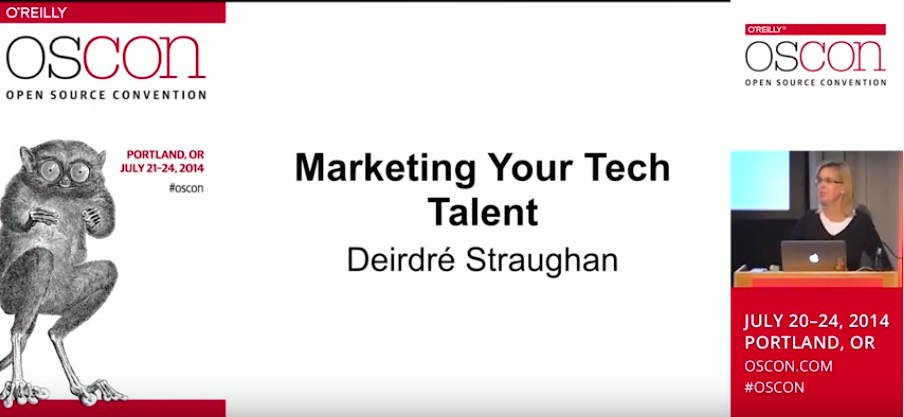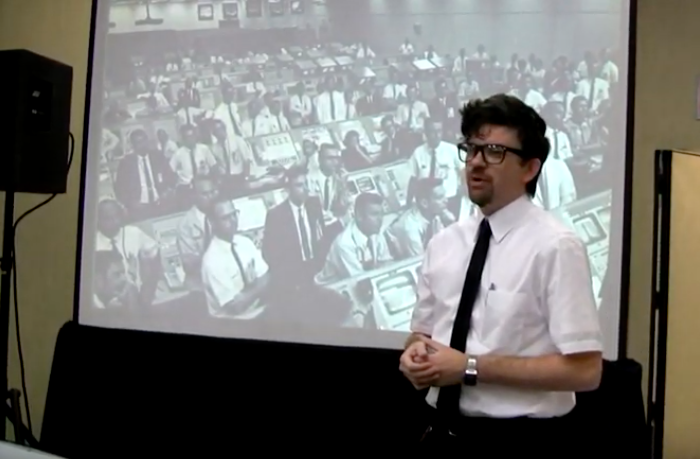“You can always go to a startup.” Job seekers in the Bay Area hear this refrain, especially from people with no experience of startups (or tech, or the Bay Area). Startups are seen as the sexy option. Some startup employees even dismiss those who stay in “safe” jobs at bigcos: “You must lack the guts or the talent to be out on the tech frontier, boldly disrupting the establishment!”
Easy for you to say. For many of us, working for a startup is not a realistic option. Not because we lack guts or talent (many of us have worked at startups before) but because most startup jobs are – by design – suited only to a very particular demographic. This limits employment prospects for the many who are not part of that group, but it also hurts the startups themselves.
If you’re a startup founder, you may think you don’t care about this particular problem, but you should.
The Lifecycle Barrier
I am not (for the moment) talking about the sexism and racism rampant in tech today. These are real problems and I in no way dismiss them, but there’s another barrier to job mobility, one that sooner or later everyone may face. I’m referring to the human lifecycle which, for many of us, looks like this:
- childhood
- college
- relationships / marriage
- babies
- kids growing up
- kids in college/empty nest
- retirement
For the first phase or two of this cycle, we usually have others providing for us. From phase three, we start providing for others, including our future retired selves.
The financial onus of a traditional middle-class family lifestyle today is staggering, more so in real estate markets like the Bay Area. People with families need decent salaries, good benefits, and humane hours: basic working conditions that are not met by most startup jobs.
The Trouble with Startups
Startups tend to offer lower salaries and skimpier benefits*, while expecting long working weeks. As an employee, you are asked to invest a lot of time and brainpower in a venture which is extremely unlikely to pay off for you. The bait is lottery odds of getting rich on stock options, or a (usually illusive) sense of participation in “changing the world”.
It’s tempting to believe that startups and the VCs who fund them rely on the naïveté of young techies to fill these jobs. Regardless, most older employees can’t follow a startup dream even if we’d like to: we simply can’t afford the financial risk while we have responsibilities to provide for others. This is what I call the lifecycle barrier.
The lifecycle barrier is not exactly the same as ageism. It is possible to be older and less encumbered – e.g. divorced, kids grown, retirement funds safely socked away. But then ageism does come into play: many startups and VCs won’t even look at older people anyway.
Why You Need Lifecycle Diversity in Your Startup
The lifecycle problem harms startups in at least two critical ways.
First, it reduces the pool of candidates available for hire by startups. There’s huge demand for young people willing to work (and be compensated) startup-style, and every company is competing for a limited pool of such. Hence the increasingly strained attempts to stand out in cheap perks like free lunches, designer coffee, and employee drinkups.
Even if you manage to hire all the bright young things you want, you’ll still be missing something: your team will lack the perspective that diversity brings. The kind of perspective that comes with different cultures and experiences, sexes and sexualities, and just plain years of life and work. If the intended users of your products include any demographic other than young techies, you’re at far greater risk of failing (with a company, a product, or a feature) through lack of life experience and the broader empathy that such experience brings. You risk death by groupthink.
And then… young employees do get older, and eventually start to care about mortgages and school districts. If your financial model relies on your staff working 80 hours a week for relatively low wages, you may be sitting on a time bomb: can you cash out before key employees leave because they can no longer afford to work on your terms?
Fixing the Problem
If you’re a founder or investor, what could you change? What could you do to attract the diverse range of employees that your startup needs?
It probably requires rethinking your financial model and compensation structure, and thinking about what it means to be a desirable employer to a broad range of people. It requires thinking about company culture and how it is expressed, and whether yours is welcoming to more people than the stereotypical [young, male] startup employee. Myself and various middle-aged friends have had the experience of walking into a startup office and thinking: “I would not fit in here. Nor would I even want to.” Does this describe your company? Fix that.
So here’s a challenge: Think you’re a disruptor? Prove it. Start by disrupting the startup employment model. A whole bunch of smart, capable potential employees will be watching. And you might even persuade some of us to come work for you.
PS
As for me, I now work for Ericsson, arguably the most multinational company in the world, which keeps the long-term welfare of its employees very much in mind. People who join Ericsson tend not to leave.
People with families do, of course, sometimes found and work for startups. But those who can afford to do so often have already achieved sufficient financial security (perhaps having been winners in an earlier startup lottery) to take the risk. To be a serial entrepreneur, you have to have had a success somewhere along the line.
For more reasons and ways startup culture needs to change, read Shanley Kane’s YOUR STARTUP IS BROKEN: INSIDE THE TOXIC HEART OF TECH CULTURE. It’s uncomfortable reading. I highly recommend it.
Thanks to Melinda Byerly for very useful comments on this piece!
* The original article “Benefits matter, or why I won’t work for your Y Combinator startup” appears to have been completely removed from the Internet by its author. Which is a pity. It made some good and true points, and generated some useful discussion, you can see examples at the link above.

















